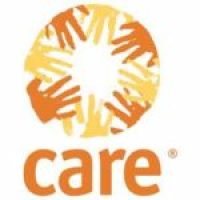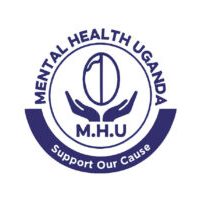The International Trade Centre (ITC) is a joint agency of the United Nations and World Trade
Organization based in Geneva. ITC’s mission is to enable small business export success in developing
and transition- economy countries, by providing, with partners, sustainable and inclusive development
solutions to the private sector, trade support institutions (TSIs) and policymakers.
Having worked with SMEs for 60 years, ITC is familiar with the unique needs of SMEs, including youth
and women-led enterprises, and has vast experience in improving their international competitiveness
and connecting them with markets:
• ITC’s Youth & Trade Initiative takes a market-led approach to address gaps in skills and enhance the
competitiveness of young entrepreneurs. The programme works with ecosystem actors to strengthen the
business environment for youth-led companies and provide pathways to youth employment in key value
chains. ITC manages a global community supporting young entrepreneurs – Ye! Community, which
connects youth entrepreneurs and key ecosystem actors to provide access to resources, tools,
opportunities, and networks, to enhance their entrepreneurial capacities.
• ITC ecomConnect has developed a well-practiced methodology accompanies SMEs on their digital
journey through its training programme, research, and facilitation of innovative solutions, collaborative
structures, partnerships, and digital tools and technologies. In addition, the ecomConnect programme
works closely with a wide range of local stakeholders and partner agencies, especially BSOs, and
provides them with capacity building and knowledge on online trade and exports.
• ITC’s Tech Sector Development team supports the internationalization of African tech start-ups. ITC
has implemented projects in Benin, Côte d’Ivoire, Ethiopia, Ghana, Mali, Senegal and Uganda focused
on supporting local tech companies and digital freelancers, as well as the local innovation ecosystems.
In 2019, ITC launched the #FastTrackTech initiative. FastTrackTech provides targeted coaching,
matchmaking with potential clients and investors to digital entrepreneurs who aspire to international
growth in Benin, Côte d’Ivoire, Ethiopia, Mali, Rwanda, Tanzania, and Zambia.
• ITC SheTrades Initiative aims to create an ecosystem of integrated solutions that empower women
economically through greater integration in trade and investment. The Initiative ensures that the right
capacities and conditions are present for women to trade and that they are supported by an ecosystem
of market partners and effective support organizations. At the same time, SheTrades works to remove
inequalities in the trade policy space that hinder women’s participation.
• ITC Institutions and Ecosystems section is dedicated to support and enhance the performance of
business support organizations (BSOs). The support to BSOs is structured in three key pillars: assess,
improve, and connect organizations. The end goal of the support is to ensure that MSMEs and startups
receive targeted and well-structured support from efficient and professional organizations.
INTERNATIONAL TRADE CENTRE
• The ITC Trade Policy and Investment Facilitation (TPIF) Unit supports trade and investment policy
formulation and implementation by working with policymakers to review and update policies and
regulatory frameworks and informing and advising trade and investment negotiators. TPIF also assists
chambers of commerce and other business support organizations (BSOs) to articulate MSMEs views
effectively to ensure that policies, regulatory reforms, and negotiations all reflect a well-informed business
perspective.
Unemployment and underemployment are key drivers of poverty in Sierra Leone. At 10.1%, the youth
unemployment rate is over double the national average, and 60-70% of the working population are
classified as working poor. The digital economy provides opportunities for more and better paid jobs, and
digitalization has the potential to drive SME competitiveness and growth.
However, Sierra Leonean youth, especially young women, lack awareness of opportunities available in
the digital economy as well as the relevant knowledge and skills to take advantage of them.
Consequently, many youths are not employable in technology-related jobs. Youth entrepreneurship is
key to reduce unemployment in Sierra Leone, yet most youth-led MSMEs, especially those led by young
women, lack skills to adopt digital technologies in their businesses, maximize e-commerce opportunities,
and secure financing. Young people and young entrepreneurs lack an effective and coordinated voice to
influence policymaking processes related to the digital economy to ensure that their needs are met.
At the business ecosystem level, entrepreneurship support provided by the government, development
agencies, and NGOs rarely offer a combination of sector, digital, and entrepreneurship-oriented
programmes. There is a lack of coordination among BSOs, tech service providers, and market partners.
Business and digital support services are insufficient and not adapted to the needs of young people and
young entrepreneurs. BSOs and tech hubs do not provide sufficient digital entrepreneurship support to
youth-led MSMEs, and financial institutions have limited service offerings to support young women
entrepreneurs to contribute to the digital economy.
Implemented over a four-year period from June 2024 to 2028, the ‘Sierra Leone: Empowering youth
through digital technologies’ project has the overall objective of contributing to economic growth and job
creation in Sierra Leone by enhancing the participation of youth in the digital economy.
To achieve this, the project will:
• Increase the capacity of youth to use digital technologies for work, entrepreneurship and social
inclusion;
• Enhance the competitiveness of young entrepreneurs through the adoption of digital technologies;
• Improve youth-specific service offerings of business support organizations and tech hubs;
• Strengthen the inclusive national strategies and policies related to the digital economy
FUNCTIONS
Under the direct supervision of the Programme Officer, READY Salone Project and the general guidance
of the Senior Programme Officer, Women and Trade Programme the incumbent will be responsible for
the following duties:
• Participates in the implementation and evaluation of assigned project; monitors and analyzes project
implementation; reviews relevant documents and reports; identifies problems and issues to be
addressed and proposes corrective actions; liaises with relevant parties; identifies and tracks followup actions.
• Performs consulting assignments, in collaboration with partner organizations, by planning facilitating
workshops, through other interactive sessions and assisting in developing the action plan the partner
organizations will use to manage the change.
• Researches, analyzes and presents information gathered from diverse sources.
• Assists in policy review and development, including the review and analysis of issues and trends,
preparation of evaluations or other research activities and studies.
• Undertakes survey initiatives; designs data collection tools; reviews, analyzes and interprets
responses, identifies problems/issues and prepares conclusions.
INTERNATIONAL TRADE CENTRE
• Prepares various written outputs, e.g. draft background papers, analysis, sections of reports and
studies, inputs to publications, etc.
• Provides substantive support to consultative and other meetings, conferences, etc., to include
proposing agenda topics, identifying participants, preparation of documents and presentations, etc.
• Undertakes mobilization and outreach activities; conducts training workshops, seminars, etc.; makes
presentations on assigned topics/activities.
• Participates in or leads field missions, including provision of guidance to external consultants,
government officials and other parties and drafting mission summaries, etc.
• Coordinates activities related to budget and funding (project preparation and submissions, progress
reports, financial statements, etc.) and prepares related documents/reports (pledging, work
programme, programme budget, etc.).
• Performs other duties as required.
Work implies frequent interaction with the following:
• Counterparts, senior officers and technical staff in ITC headquarters and field offices, as well as
counterparts from other UN specialized agencies in Sierra Leone.
• Representatives and officials in national governments, international organizations, consultants
• Project implementing partners – NGOs, tech hubs, incubators, business support organizations
• Project beneficiaries – young women and men and people with disabilities; youth entrepreneurs and
SMEs
KEY DELIVERABLE AND MONITORING / PROGRESS CONTROLS
Implements, monitors and evaluates assigned project. Provides thorough, well reasoned written
contributions, e.g., background papers, analysis, sections of reports and studies, inputs to publications,
etc. Develops and maintains effective working relationships. Promulgate coherent policies, and
consistent adherence to these by clients. Efficiently uses of resources.
RECRUITMENT QUALIFICATIONS
Minimum education and qualifications (level and field of study)
Advanced university degree (Master’s degree or equivalent) in business administration, management,
economics or a related field.
A first-level university degree in combination with additional two (2) years qualifying experience may be accepted in lieu of the advanced university degree.
Minimum experience (nature, length and field of experience)
A minimum of five (5) years of progressively responsible experience in project or programme management, administration or related area.
Desirable experience
Experience of working on the following topics is an advantage: digital and trade; digital upskilling; youth entrepreneurship and employment; women and trade; persons with disabilities and trade.
Minimum language requirement
Fluency in English (both oral and written) is required. Knowledge of Krio is an advantage.
INTERNATIONAL TRADE CENTRE
Critical job-specific competencies
ITC core values: Professionalism, Integrity, Respect for Diversity
Competencies:
• Professionalism: Knowledge and understanding of theories, concepts and approaches relevant to
particular sector, functional area or other specialized field. Ability to identify issues, analyze and
participate in the resolution of issues/problems. Ability to conduct data collection using various methods.
Conceptual analytical and evaluative skills to conduct independent research and analysis, including
familiarity with and experience in the use of various research sources, including electronic sources on
the internet, intranet and other databases. Ability to apply judgment in the context of assignments given, plan own work and manage conflicting priorities. Shows pride in work and in achievements;
demonstrates professional competence and mastery of subject matter; is conscientious and efficient in
meeting commitments, observing deadlines and achieving results; is motivated by professional rather
than personal concerns; shows persistence when faced with difficult problems or challenges; remains
calm in stressful situations. Takes responsibility for incorporating gender perspectives and ensuring the equal participation of women and men in all areas of work.
• Communication: Speaks and writes clearly and effectively; listens to others, correctly interprets
messages from others and responds appropriately; asks questions to clarify, and exhibits interest in
having two-way communication; tailors language, tone, style and format to match audience;
demonstrates openness in sharing information and keeping people informed.
• Planning& Organizing: Develops clear goals that are consistent with agreed strategies; identifies
priority activities and assignments; adjusts priorities as required; allocates appropriate amount of time
and resources for completing work; foresees risks and allows for contingencies when planning; monitors and adjusts plans and actions as necessary; uses time efficiently.
• Accountability: Takes ownership of all responsibilities and honours commitments; delivers outputs for which one has responsibility within prescribed time, cost and quality standards; operates in compliance with organizational regulations and rules; supports subordinates, provides oversight and takes responsibility for delegated assignments; takes personal responsibility for his/her own shortcomings and those of the work unit, where applicable.
• Technological Awareness: Keeps abreast of available technology; understands applicability and
limitation of technology to the work of the office; actively seeks to apply technology to appropriate tasks; shows willingness to learn new technology.








